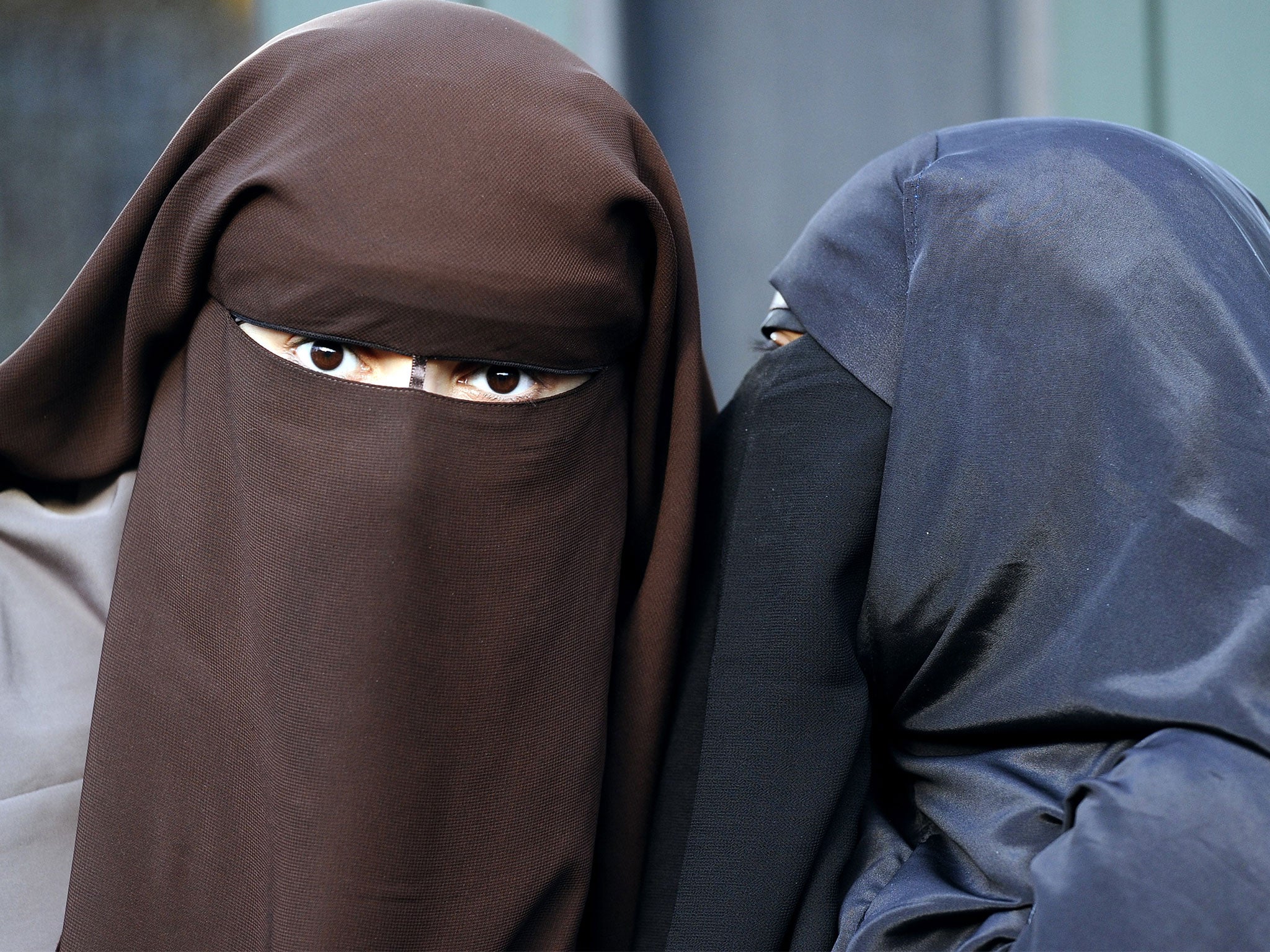France's niqab ban violates human rights by leaving Muslim women 'confined at home', UN panel rules
Landmark case sees move to make full-face veil illegal in 2010 declared an infringement of religious freedom

Your support helps us to tell the story
From reproductive rights to climate change to Big Tech, The Independent is on the ground when the story is developing. Whether it's investigating the financials of Elon Musk's pro-Trump PAC or producing our latest documentary, 'The A Word', which shines a light on the American women fighting for reproductive rights, we know how important it is to parse out the facts from the messaging.
At such a critical moment in US history, we need reporters on the ground. Your donation allows us to keep sending journalists to speak to both sides of the story.
The Independent is trusted by Americans across the entire political spectrum. And unlike many other quality news outlets, we choose not to lock Americans out of our reporting and analysis with paywalls. We believe quality journalism should be available to everyone, paid for by those who can afford it.
Your support makes all the difference.France’s ban on Muslim women wearing the niqab in public has been deemed an infringement of human rights in a landmark United Nations ruling.
The UN said it had upheld two complaints made against the French government’s policy of fining women for wearing full-face veils after determining it violated their individual rights.
The complaints were made in 2016 by two French women who were convicted four years earlier of obscuring their face in public by wearing a veil.
France outlawed citizens wearing any form of face covering in public in 2010, effectively banning the niqab, a veil worn by a small minority of Muslim women which leaves only the eyes visible.
In a ruling handed down on Tuesday, the UN’s human rights committee said the ban disproportionately harmed the women’s right to exercise their religious beliefs.
“The decisions are not directed against the notion of secularity, nor are they an endorsement of a custom which many on the committee, including myself, regard as a form of oppression of women,” committee chair Yuval Shany said.
“Rather, the decisions represented the position of the committee that a general criminal ban did not allow for a reasonable balance between public interests and individual rights.”
France had argued the ban was necessary and proportionate from a security standpoint, as well as to achieve the societal goal of “living together”.
But, the committee ruled, a general ban on the niqab was unnecessary for this purpose and rather than protecting fully veiled women, could leave them isolated by “confining them to their homes”.
France’s ban on face veils proved contentious at the time of its introduction.
Dalil Boubakeur, the grand mufti of the Grand Mosque of Paris, France’s largest and most influential mosque, gave evidence before the French parliament that the niqab was not required by Islam.
Stopping short of endorsing the ban, he testified the garment’s contemporary usage in France was associated to religious extremism and criminal behaviour.
Mohammed Moussaoui, the president of the French Council of the Muslim Faith, opposed making the niqab illegal, but said French Muslims should be discouraged from wearing full-face coverings.
Human rights organisation Amnesty International criticised the ban, describing it as a violation of the freedom of expression of women who chose to wear a veil.
France will now be given 180 days to demonstrate it has taken the UN findings on board and compensate the two women who brought the complaints.
Join our commenting forum
Join thought-provoking conversations, follow other Independent readers and see their replies
Comments